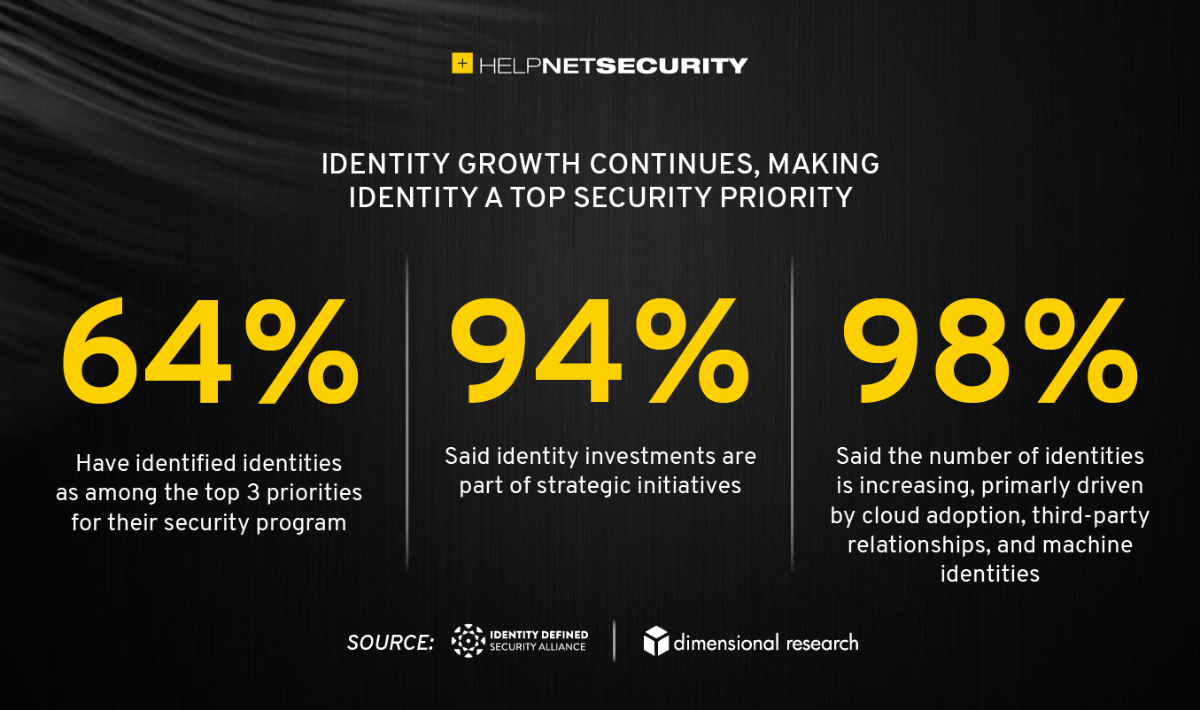Risky behavior reduced when executives put focus on identity security
Managing identities accessing enterprise resources has become significantly more complicated over the last several years. Between the increasing number of identities, the challenges posed by phishing attacks, and the continued growth of cloud adoption, enterprises are under tremendous pressure to ensure that remote workers, contractors, and employees are accessing network resources securely and successfully.

As identity-related breaches continue to be a massive threat, the 2022 Trends in Securing Digital Identities report from the Identity Defined Security Alliance (IDSA) examines the progress organizations are making in defending against these attacks and the internal factors that are both enabling and interfering.
An alarming 84% of respondents said their organization has experienced an identity-related breach in the last year, with 78% citing a direct business impact as a result. Organizations are responding by prioritizing identity in their security programs and making identity investments a part of strategic initiatives, such as cloud adoption, zero trust and digital transformation.
Identity growth continues, making identity a top security priority
- 98% reported that the number of identities is increasing, primarily driven by cloud adoption, third-party relationships and machine identities
- 94% said identity investments are part of strategic initiatives including cloud adoption (62%), zero trust implementation (51%) and digital transformation initiatives (42%)
- 64% of respondents say managing and securing identity is one of the top three priorities of their security program
Identity-related attacks rising and impactful, but preventable
- 84% of respondents said they experienced an identity-related breach in the past year
- 78% cited direct business impacts as a result of the breach including recovery costs and reputational damage
- 96% reported that they could have prevented or minimized the breach by implementing identity-focused security outcomes
Investments in security outcomes still a work in progress, focus on basics lacking
- 97% reported that they are planning to invest in identity-focused security outcomes
- 51% typically remove access for a former employee within a day, but only 26% always do
- 43% believe that implementing multifactor authentication (MFA) would have made a difference in preventing breaches
Problematic behavior is reduced when executives take identity security seriously
- 60% of IT/Security stakeholders admit to risky security behaviors
- More than 70% report that top executives speak publicly to employees about credential security
- 72% of respondents are more careful with their work passwords than personal passwords when executives discuss passwords
“Managing identities is becoming more and more complicated for organizations. Identities are growing in numbers and types, with the continuation of remote work, the increase in contractors and third-party relationships and the explosion of machine identities,” said Julie Smith, executive director of the IDSA.
“This has led to an increase in identity-related breaches, creating business impacts to today’s enterprises. Although identity defined security investments are still a work in progress, companies are making headway. More organizations are not only making identity a priority, but investing in identity-focused outcomes. And it’s not just technology investments, executive support is making a meaningful difference in the way employees protect their corporate credentials, decreasing business risks and improving the overall security posture of their organization.”